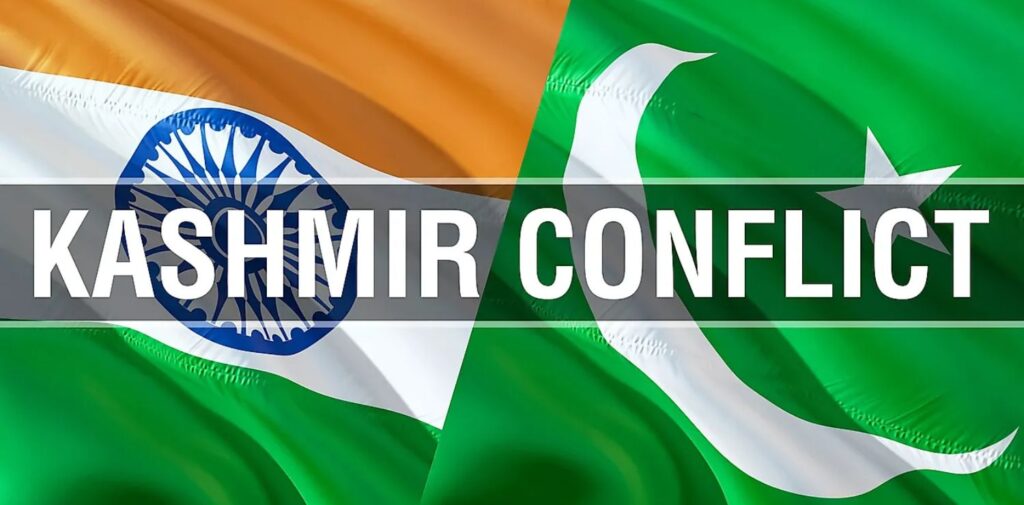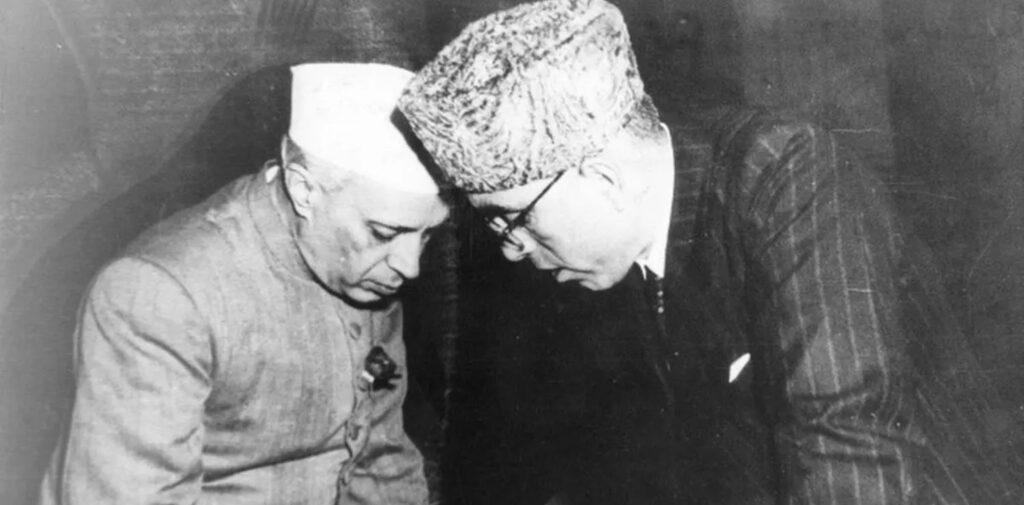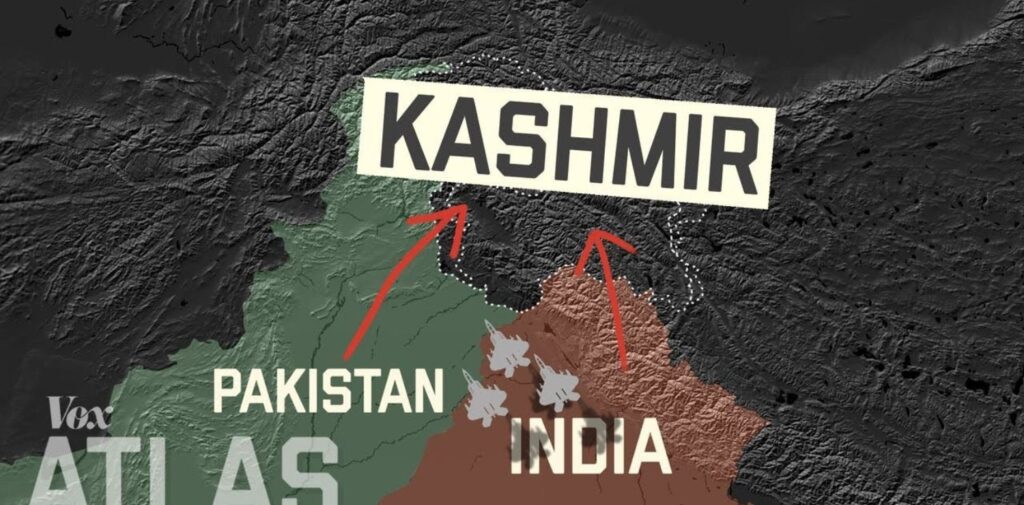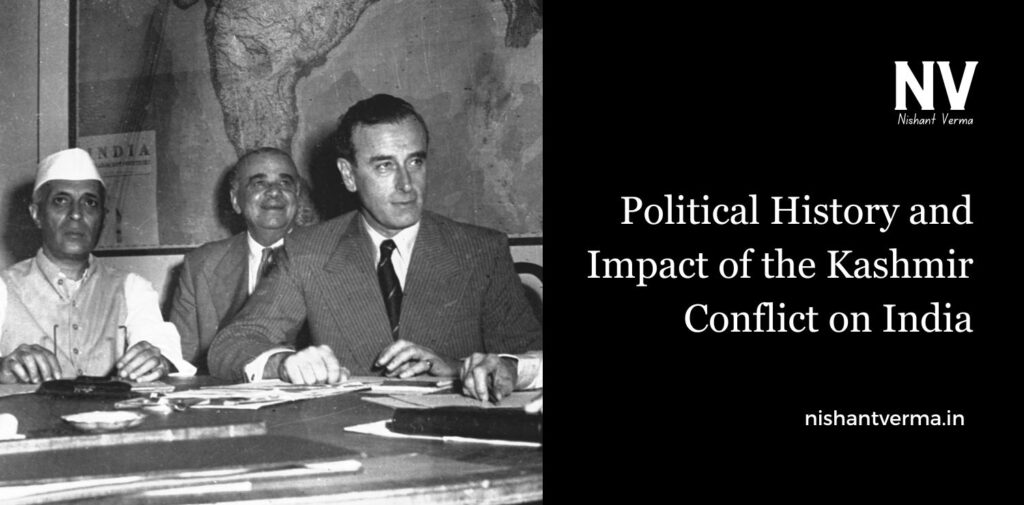The Kashmir conflict is one of the longest-running and most complex disputes in the world. For decades, India and Pakistan have been in disagreement over the control of the Kashmir region, and this conflict has affected the lives of millions of people. It has also influenced the politics of India and shaped the way the country deals with national security and diplomacy. In this article, we will explore the history of the Kashmir conflict and its impact on India in simple terms.
What is the Kashmir Conflict?
The Kashmir conflict is a territorial dispute between India and Pakistan over the region of Kashmir, located in the northern part of the Indian subcontinent. Kashmir is a beautiful region, known for its snow-capped mountains, rivers, and rich culture. However, the beauty of Kashmir has been overshadowed by political struggles.
After India gained independence from British rule in 1947, the subcontinent was divided into two countries: India and Pakistan. The partition was based on religion, with Pakistan being created as a Muslim-majority country and India as a secular country with a Hindu majority.

The princely state of Jammu and Kashmir, which was located between India and Pakistan, had a majority Muslim population but was ruled by a Hindu king, Maharaja Hari Singh. This created a difficult situation. When India and Pakistan were divided, Maharaja Hari Singh had to decide whether to join India or Pakistan.
In 1947, when Pakistan tried to take control of Kashmir, Maharaja Hari Singh sought help from India. In return, he agreed to sign the Instrument of Accession, which allowed India to take control of the region. However, Pakistan did not accept this decision and claimed that Kashmir should be part of Pakistan because of its Muslim majority.
This disagreement led to the first war between India and Pakistan in 1947-48. The war ended with a ceasefire and the establishment of a border called the Line of Control (LoC), which divided Kashmir between the two countries. However, the issue of who should control Kashmir remained unresolved, and it has been a source of conflict ever since.

Key Events in the Kashmir Conflict
Over the years, there have been several important events in the Kashmir conflict that have shaped the political history of India.
- 1947-1948: The First War: As mentioned earlier, after India’s independence, Pakistan and India fought their first war over Kashmir. Pakistan wanted Kashmir to be part of its territory, while India wanted Kashmir to stay with them. The war ended in a ceasefire, with the region being divided into areas controlled by India and Pakistan. The Line of Control (LoC) was established to mark the division, but the conflict was far from over.
- 1965: The Second War: In 1965, India and Pakistan fought another war over Kashmir. The war lasted for several weeks, but neither side was able to achieve a clear victory. A ceasefire was declared, and both countries agreed to a peace agreement. However, the Kashmir issue remained unresolved.
- 1971: The Bangladesh War: Although the 1971 war between India and Pakistan was mainly about the independence of Bangladesh, it also had an impact on Kashmir. After the war, Pakistan lost East Pakistan (which became Bangladesh) and was forced to accept the existing situation in Kashmir, but the underlying tensions between India and Pakistan continued.
- 1989: The Insurgency Begins: In 1989, a new phase of the Kashmir conflict began. This time, the conflict was not just between India and Pakistan but also involved local people in Kashmir. Many Kashmiris, especially Muslims, began to demand azadi (freedom) from India, seeking independence or joining Pakistan. This led to a violent insurgency, with militant groups fighting against the Indian government. India responded by sending troops to control the situation. The insurgency caused widespread violence, and many lives were lost. The region remained unstable, and the conflict deepened.
- Article 370 and 35A: Special Status for Kashmir: For many years, Kashmir was given special status under Article 370 of the Indian Constitution. This meant that Kashmir had its own laws, a separate constitution, and more autonomy compared to other Indian states. Article 35A allowed the Jammu and Kashmir government to define permanent residents and give them special rights in the region. However, in August 2019, the Indian government led by Prime Minister Narendra Modi decided to revoke Article 370 and Article 35A, removing the special status of Kashmir. This decision was controversial and led to protests in Kashmir and across India. Many people believed that the move would worsen the situation in Kashmir and create more unrest.

The Impact of the Kashmir Conflict on India
The Kashmir conflict has had a huge impact on the politics, security, and diplomacy of India. Let’s look at some of the ways this conflict has affected India:
- Security Concerns: The Kashmir conflict has made India very concerned about its security. Over the years, India has had to send military forces to the region to maintain control and prevent violence. The presence of the army has created a sense of fear and instability among the people of Kashmir, and many families have been affected by violence, curfews, and military operations. The constant threat of terrorism from Pakistan-backed groups and the violence within Kashmir have forced India to spend a lot of resources on security measures. India’s security forces have faced many challenges in trying to keep peace in the region.
- Impact on Relations with Pakistan: The Kashmir conflict has also had a major impact on India’s relationship with Pakistan. Over the years, the two countries have fought three wars and have had numerous skirmishes along the LoC. Pakistan continues to claim that Kashmir should be part of Pakistan, while India insists that Kashmir is an integral part of India. The Kashmir issue has led to mistrust and hostility between India and Pakistan. Tensions often rise between the two nations, especially after attacks by militant groups, which India believes are supported by Pakistan. These tensions have affected trade, diplomatic relations, and regional peace.
- Internal Struggles and Division: The Kashmir conflict has also caused internal divisions within India. Some people, especially those from the Muslim community, sympathize with the people of Kashmir and support their demand for greater autonomy or independence. Others, particularly in the Hindu community, view Kashmir as a part of India and oppose any separatist movements. The conflict has also affected the people of Kashmir, who have experienced years of violence, economic hardship, and a lack of basic resources. Many Kashmiris feel isolated, and the political unrest has left the region deeply divided.
- International Attention: The Kashmir conflict has drawn attention from the international community. Several countries and organizations, including the United Nations, have called for peace and a resolution to the dispute. The situation in Kashmir often becomes a topic in international diplomacy, with many countries urging both India and Pakistan to resolve their differences peacefully.
- Impact on India’s Political Landscape: The Kashmir conflict has played a major role in shaping India’s political landscape. Political parties often use the issue of Kashmir to gain support from voters. The government’s handling of the conflict, especially in terms of security and diplomacy, is a key issue in elections. The decision to revoke Article 370 in 2019 sparked a debate across India, with some supporting the move and others opposing it. This has shown that Kashmir remains a deeply sensitive issue that can affect the political climate in India.
Conclusion
The Kashmir conflict is a complex and deeply emotional issue that has affected India for more than seven decades. It has shaped the country’s security policies, relations with Pakistan, and internal politics. The conflict has caused loss of life, economic hardship, and political instability in the region, and its effects are still being felt today.
While the people of Kashmir continue to seek peace and stability, the broader India-Pakistan conflict over the region remains unresolved. The Kashmir issue will continue to influence India’s political future, and finding a peaceful solution to the conflict remains one of the biggest challenges for the country.




